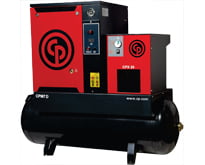- ABOUT
- BRANDS
- PRODUCTS
- Woodworking Machines & Consumables
- Laser Marking & Cutting Machines
- Power Tools & Hand Tools
- Sawing
- Portable Edge Banding Machine
- Drilling & Screwdriving
- Portable Jointing Machines
- Woodworking and Metalworking Clamps
- Hand Planers & Portable Thickness Planers
- Hand Routers & Trimmers
- Surface Finishing Tools
- ACP Fabrication Tools
- Drywall Construction Tools
- Multi Tool Oscillators
- Workplace Organisation
- Metal Working Power Tools
- Portable Dust Extractors
- Dust Collection & Pollution Control Equipment
- Paint Booth, Spraying Machines and Clean Rooms
- Material Handling Equipment
- Air Compressors, Purification & Pneumatics
- Packaging Machines
- Power Related Equipment
- Aluminium & uPVC Fabrication Machines
- Second Hand Machinery
- Interior Solutions
- PACKAGES
- More
Currency
0





